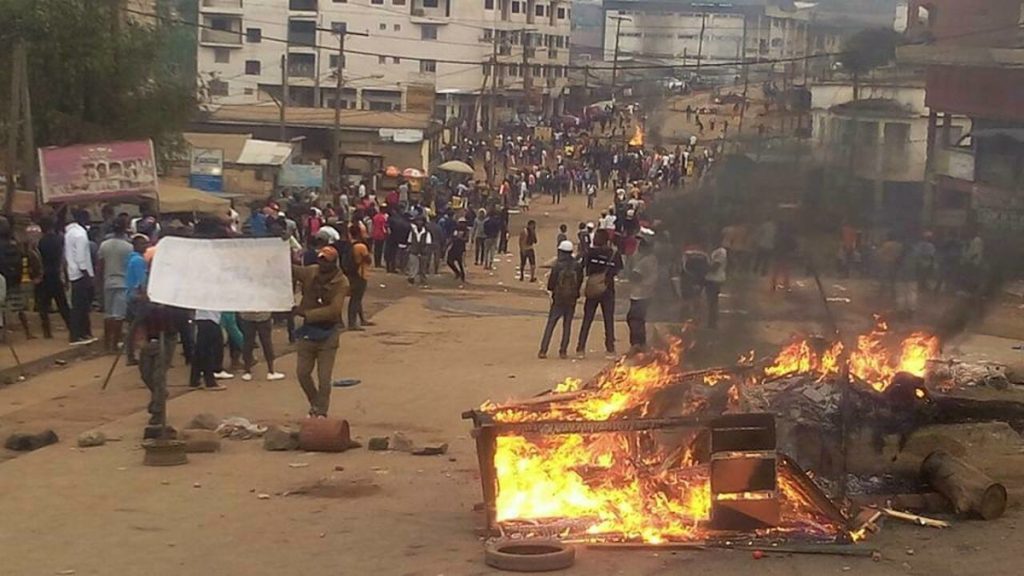
In broad terms elections simply refer to the process of a group of people voting others to hold office on their behalf. Elections are mostly common in public offices, but also holds in associations, cooperate bodies and different other structures.
Election is seen as a peace keeping and building tool, one of the ways through which societies can resolve the issue of who or what system to lead them.
According to the UN, elections play a significant role in peace processes since they are widely considered to be the main method of achieving a peaceful resolution to political controversies.
In truth, the election process can contribute to peace, but it can also provide entry points for violence and conflicts because of the competitive patterns embedded in the “winner-loser” dichotomy.
It’s such instability according to the UN research on “The role of elections in peace processes -When and how they advance stability or exacerbate conflicts” authored by Svenja Korth, “that can derail the peace process and hamper both short-term recovery efforts and long-term development”.
Svenja Korth postulate that “Political systems are a means to manage political competition and conflict in a peace-ful way. However, if underlying political conditions are not conducive to creating unity among stakeholders, as was seen in Kenya in 2007 and, most recently, in Côte d’Ivoire and Haiti, elections can set off events which can divide rather than unify”
“Electoral short-comings often are not the cause of the division, but rather the trigger to ignite more deeply rooted social, economic and political tensions. Indeed, disputed elections do not have the same causes. The basis for preventing or mitigating election-related violence is to have a good understanding of the drivers of conflict, actors and their interests and the potential causes of violence” he wrote
While elections in Cameroon have played their part in maintaining peace, they have been periods where post electoral.violence in Cameroon has instead proven the contrary.
The post election of 1992, 2018 and 2025 in Cameroon are highlights of post election violence trigger by other factors and a mistrust in the results of the polls.
After the October 11, 1992 presidential election result was proclaimed, giving the incumbent Paul Biya a slide lead, 39.98 % ahead of his main challenger John Fru Ndi with 35.97 %, the opposition claimed it won and that the pools were rigged in favour of the CPDM candidate.
This pushed Cameroonians yawning for a change after an economic slump in the early 90s and the desire to chase the wind of change blowing across the world to take to the streets, and especially in the Northwest and Bamenda on particular where a state of emergency was declared. Properties where damaged, lives lost and development stalled.
The system learned it lessons and in subsequent elections ensured the incumbent emerged a far distance ahead of the opposition. Following a boycott by the main opposition parties, the incumbent claimed 92.56 % of the votes in 1997, 70.92% in 2004, 77.99 % in 2011 and 71.28% in 2018.
This has largely left the entire opposition put together on only a fraction of the votes. But this did not stop the opposition from claiming victory in 2018, just like in 1992. Maurice Kamto who emerged distanced second with 14.23 % of the votes according to official estimate claimed he was the winner.
Fast forward to the October 2025 elections and another scenario is emerging with the potential to drag Cameroon down another ugly path.
But the questions we should be asking ourselves is why a process supposed to bring peace and stability instand leads the other way? Violence and mistrust?
Svenja Korth thinks Electoral short-comings often are not the cause of these division, but rather the trigger to ignite more deeply rooted social, economic and political tensions. Albeit electoral short coming may not be as innocent as he writes in the case of Cameroon after all.
A system bias to the sympathy of the ruling party with all involved aligned to a particular idealogy, and a cumbersome electoral code with loopholes to be exploited cannot be as innocent as one may want to believe.
If the electoral process is seen only as a trigger of post electoral conflict, because there are more underlaying issues in society, than it it’s impossible to miss the yawning for change after over four decades of monotonous rule. The economic hardship, an ongoing separatist and terrorist crisis, youth unemployment, an octagenerian and nonagenerian leadership in a country where over 60% of the population is under 24 years, crumbling public infrastructures, lack of basic social amenities and more.
This may mean the case of Cameroon is more combustible than meet the imagination. The wood is very dry and and in flames already, fuel is available and just needs a wrong decision for it to be poured on the burning fire. Let’s all be responsible and pray for our beloved fatherland.


